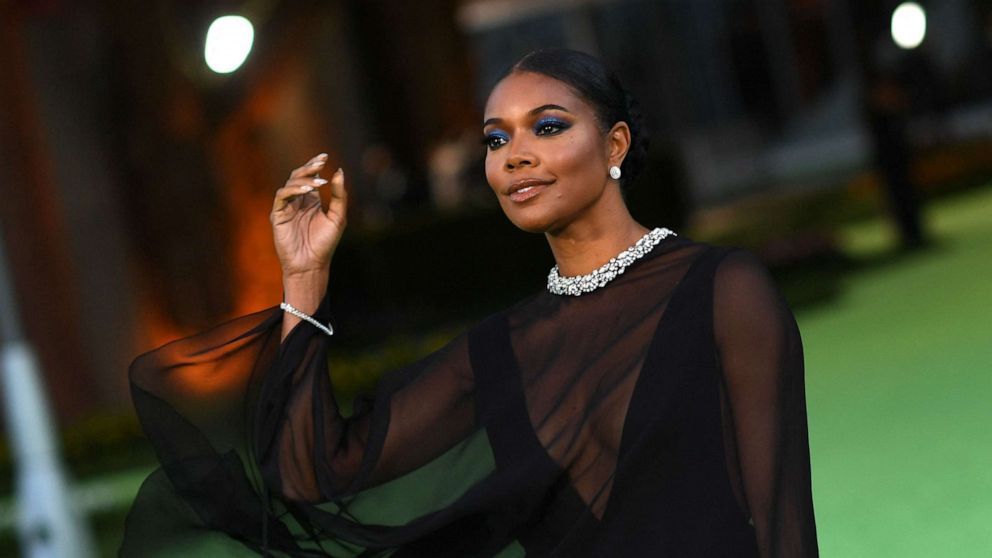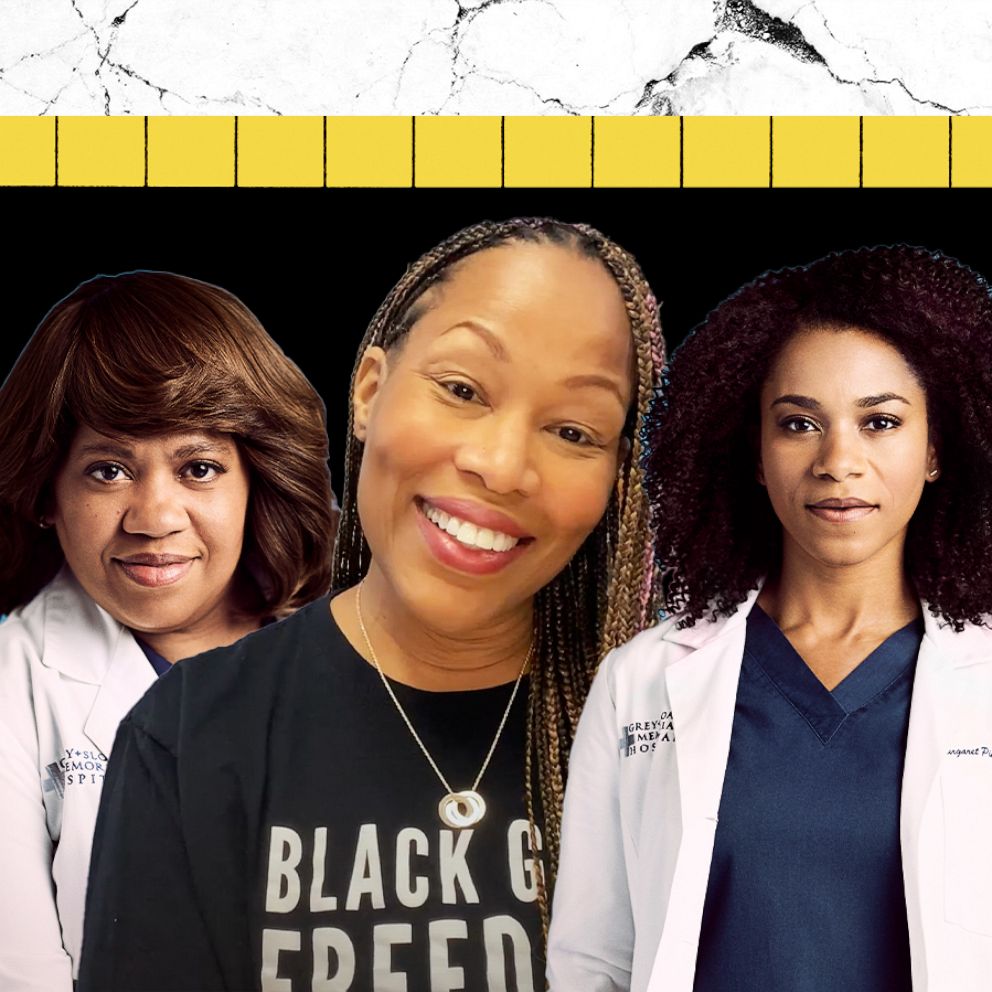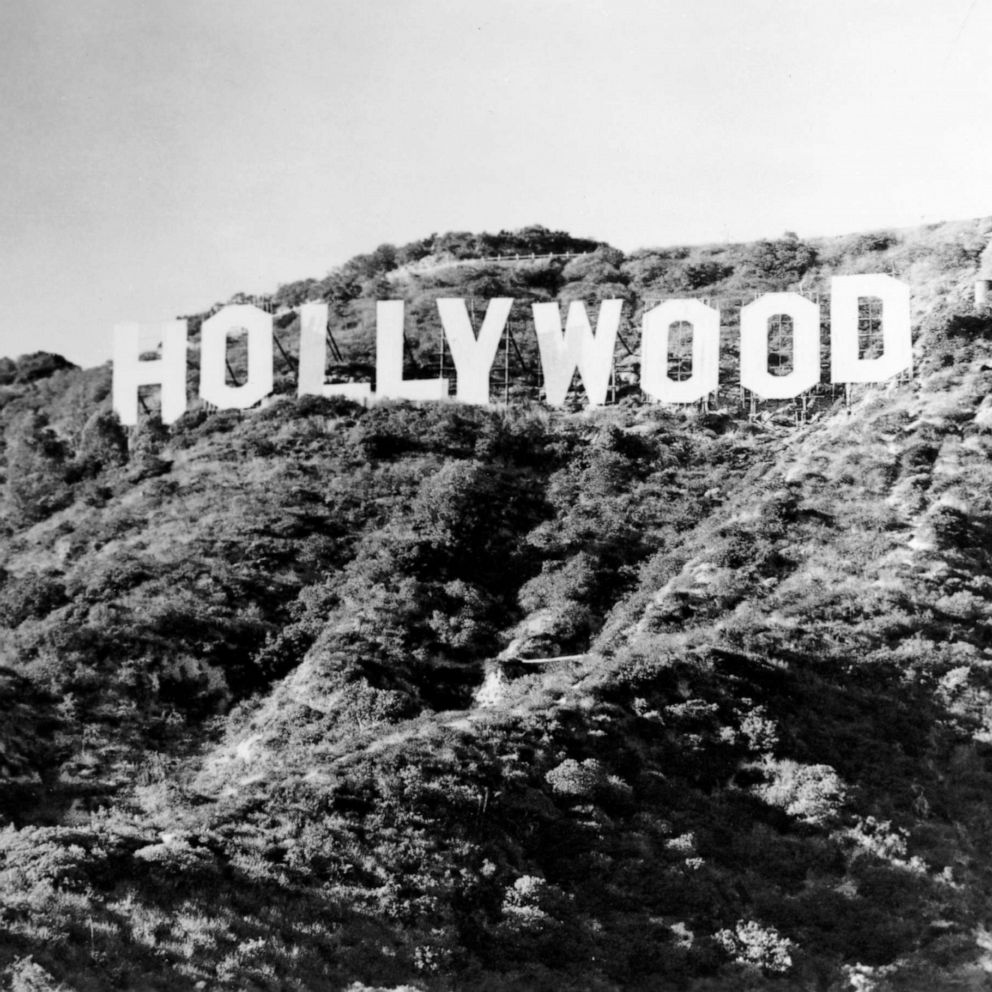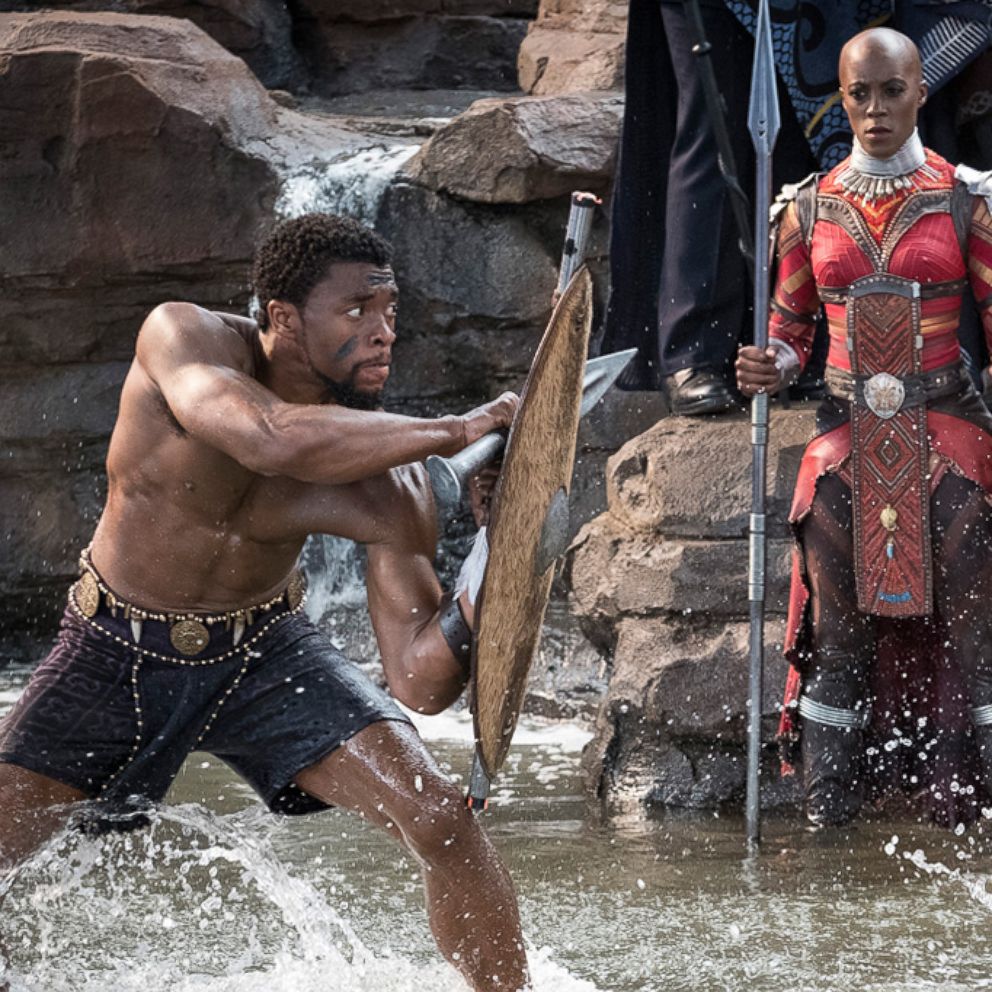Gabrielle Union pens a powerful essay about the struggles of Black women in Hollywood
Gabrielle Union has been a household name for decades, but her climb to the A-list hasn't been easy — and it isn't always easy now. In a deeply personal foreword for the new book, "Supreme Actresses: Iconic Black Women Who Revolutionized Hollywood," exclusively excerpted by "Good Morning America," Union, now 48, detailed her upbringing in Pleasanton, California, and her experiences as a Black actress. The essay kicks off more than 200 pages of photographs, interviews, and an informative look back on how Black actresses have broken glass ceilings and influenced American culture in the process. Written by entertainment journalist and former model Marcellas Reynolds, "Supreme Actresses," from Abrams Books, is on sale now.
When I was eight years old, my family and I moved to Pleasanton, California, which is exactly how it sounds. Most people think of the Bay Area as very liberal and diverse, but my parents chose a Republican hotbed that was 99% white. It seemed we were the other 1%. Soon after we arrived, the idea of “otherness” kicked in. I became aware that we no longer had our extended family to offset what I would experience at school. Before our move from Omaha, Neb., where I was born, to Pleasanton, I never thought about my race because I come from the largest Black family in Omaha. My grandparents babysat me, and most of my extended family lived close to us. So other than at school, I spent most of my life surrounded by my family members. There’s a lot of them on the north side of Omaha.
Within days of arriving in Pleasanton, I became popular and stayed that way throughout school. The problem with being popular when you’re the only Black girl in your grammar school and then your high school is that you have a bird’s-eye view of all the things popular kids have access to, but not all of those things are for you. It’s one thing if you’re on the outside looking in. You never have any idea what the popular kids have access to, but it’s another when you’re popular, yet you’re “othered.” It’s like they’re passing around all the goodies, and then they’re like, “Oh, none for you.” You’re very aware, and it hurts differently because it’s your social circle reaping all the benefits—whether it’s when your friends start having crushes on each other and begin dating and no one ever wants to date you or no one has a crush on you, or when all of your crushes go unrequited. It’s stuff like that, or people’s parents being weird about sleepovers at your house, preferring you sleep over at their homes.
Growing up as a popular kid who was also the “other” in a town like Pleasanton is similar to being a successful Black actress in Hollywood. Supposedly you have all this access, and you’re reaping the same rewards, but truthfully you’re not on many levels, especially when it comes to roles and certainly not pay. Perhaps because I’ve been dealing with it most of my life, it seemed more of the same. It’s when Hollywood starts putting you on lists—”The Up-and-Comer” or “The Who’s Who”—that you start believing the hype. You think, “Now I’m in a different space from back then.” But really, this is just what I’ve been dealing with my whole life, on a different playing field where I must be bigger and better only to maybe be considered equal, but probably not even that.
Once you are in Hollywood, you begin to believe that if you work hard enough, if your movies make a certain amount, if your television show is a hit, if you do all these things, fairness and success are assured. But then the bar keeps moving, and your expectations are so high because you’ve worked your ass off and you’ve overachieved more times than you can count. So when it doesn’t pan out how they tell you it will based upon good old-fashioned American meritocracy, it hurts a thousand times worse than if you had no expectations. When you drink the Kool-Aid, it’s that poison that hits a little different.
But it’s Hollywood and the allure of fame, and you can’t help but drink the Kool-Aid because you have to believe that there is another level if you work hard enough. You believe if you achieve enough success, or if enough people know you, that this couldn’t all have been for naught. There must be another level, and we’re all trying to get to this mysterious other level, this A-list. Then you discover, “This can’t be the A-list, because nothing has changed. I’m just making more money for other people while reaping none of the benefits.”
Historically, for all the triumphs of women of color in Hollywood, there are as many setbacks. There are moments when there is enough work for each of us, and moments when it feels like there is none. When I first came on the scene, there were all these white teen shows and Black teen shows, and there were many opportunities for new and up-and-coming people to work consistently. There were just a ton of opportunities for younger Black talent. Then there was a drought until Halle Berry won the Oscar for "Monster’s Ball." That created more work, but not as many starring roles for anyone who wasn’t Halle. I go from starring in "Bad Boys II," which opens at $55 million—“Oh my God, you’re the It girl”—to my next role as the fifth or sixth lead on "City of Angels," a CBS medical procedural.
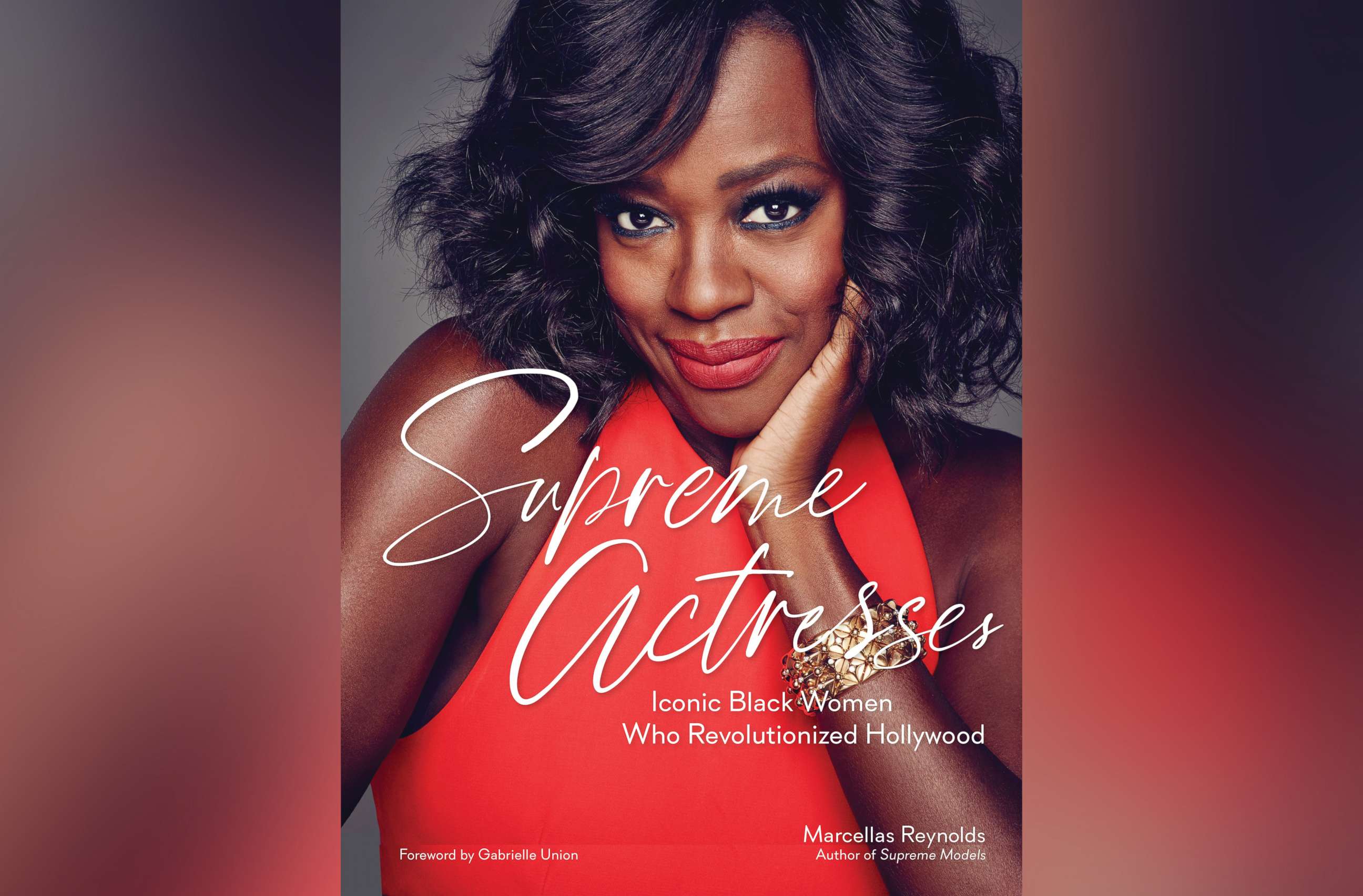
... The bar kept moving. There were these ebbs and flows. Then there would be a wave of some more, and then it would recede. With cable, streaming platforms, and many different ways to consume content now, is there more work? Yes, there’s way more. Are they paying well for all those roles? No. Is it harder to move up, if you will? Hell yeah. It’s just “We giveth, and then we taketh away.” Yet you can’t say there’s no progress in terms of the kinds of roles or even the quality because there are more. But when you’re not paid in the same way as your white counterparts, if you’re not respected in the same manner, if these roles don’t elevate your career in the same way, it’s like a backhanded compliment. It’s like being told, “You’re pretty for a Black girl.” It’s like, “Well, you asked for more diversity in front of the camera, and we gave you that. Now you want to be paid? Can’t you just be grateful for the gains?” No, because my fellow Black actresses and I deserve more.
Who has not only the ability to green light a project but also a voice in what gets bought? What kind of money are you putting toward development? What about a say in what gets developed and how? Who has control over casting? Who is it in business affairs who decides if they will pay talent what they’re worth? These questions need answers, because if you don’t have real representation and inclusion in every part of the business, while there might be gains on one side, you’re in the negative somewhere else.
The most important thing I’ve learned during my career is no matter how old you are, you have to approach everything with the wonder of a toddler, and enough wisdom and humility to know that there’s always a different way to get to the finish line. Black actresses and women are resilient and tenacious. I’m hopeful for our future in Hollywood and the world.
Though 2020 brought challenges and heartbreaks, it also brought hope. I see hope in the excellence of the work and lives of the women documented here, within the pages of "Supreme Actresses: Iconic Black Women Who Revolutionized Hollywood."
Excerpt copyright © 2021 Abrams Books. Printed by permission.
